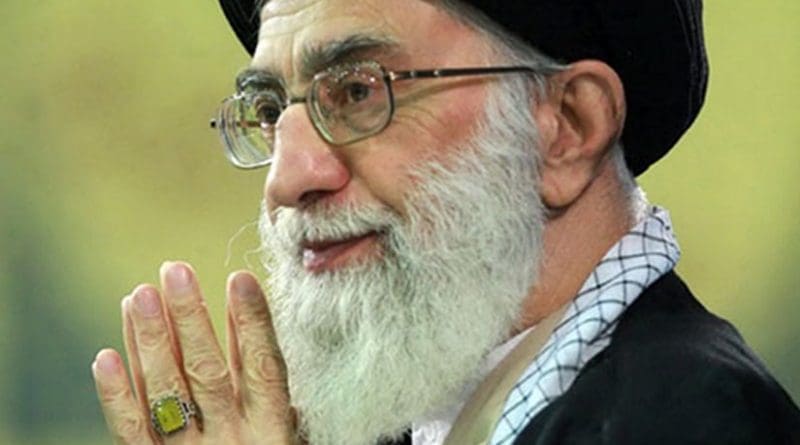Iran: Regime Self-Inflicts Damage, Dangerous Consequences Ahead – OpEd
By Hamid Enayat
It is appearing that the Iranian clerical regime attacked the Saudi Aramco oil refinery. US intelligence officials seems to have provided evidence that the attack was allegedly carried out by cruise missiles. This is a terrorist act. This is happening at the same time that the regime has created a new crisis by breaching its obligations to JCPOA. The issue has now become a serious issue in the IAEA and has put the case of regime’s attempts to make nuclear bomb on the table of world institutions.
But the key question is why the regime is taking such action when it is in a state of economic drowning and when many in Europe or in the world have been looking to negotiate with it and create political and economic openings for the regime? Is a public attack on Saudi soil ultimately in the interest of the regime?
The regime’s first goal for such terrorist attacks is to preserve its troops, both domestic and overseas, such as Hezbollah, which have been heavily shattered by political and economic conditions.
Its next goal could be to influence the course of events and gain concessions from the US or Europe. However, there are different opinions within the Iranian regime in this regard. Some in the regime believe that something can be achieved through these actions. US stated willingness to meet with the Iranian president Iran is referenced by some, but others believe that such actions will, in turn, close gaps in the opposite side, such as bringing Europe together with the United States and unifying them against the regime. For this reason, it is considered a form of self-inflict and, despite its short term gains, they assess them strategically detrimental to the regime.
The regime’s gambling is unlikely to have anything to gain. The direction and consequences of this event so far have confirmed this.
Targeting the Saudi refinery was unmistakably a blow to French efforts to find a peaceful way to resolve the crisis, and many analysts believe the move is a blow to the idea of negotiating and giving economic benefits such as providing $15 billion credit to the regime. It was the regime. So in the international arena, this act would severely weaken the position of France and those on this front, because it clearly shows and makes everyone realize that any concession to the regime will embolden it more and this it is a regime that only understands the language of decisiveness and power.
Assuming the regime gets some concessions through these measures, such as getting $15 billion credit and leaving the regime’s terrorist operations unanswered, can the Iranian regime rid itself of the crises it is in?
The main issue of the regime, however, is the confrontation between the Iranian people and the Iranian people’s resistance with the regime, which has spent all the wealth of the Iranian people for military interventions and creation of various militias in the region. Poverty is rampant and two-thirds of the of population of oil and gas rich Iran are below the poverty line. Can it respond to the army of the starving?
The widespread youth unemployment, the repression of women and the lack of basic freedoms have made the oppressed youth and women in particular look for change. Maryam Rajavi, the leader of the Iranian resistance, a Muslim woman, has challenged Iran’s misogynist regime and is increasingly welcomed by women and youth, as it is said within the Iranian regime that she has captured the streets. This is what it has left the regime with the nightmare of being overthrown. The regime wants to escape this nightmare.
To this day, the Iranian regime has been able to postpone this confrontation due to the dominance of the Western appeasement policy with Iran, but this confrontation is in the fate of the Iranian regime. The Iranian regime cannot block the desire of young men and women who want to join a modern society. This is the reason for the mullahs’ crisis.
*Hamid Enayat is an Iranian human rights activist and analyst based in Europe.


Where’s ypur evidence/proof?